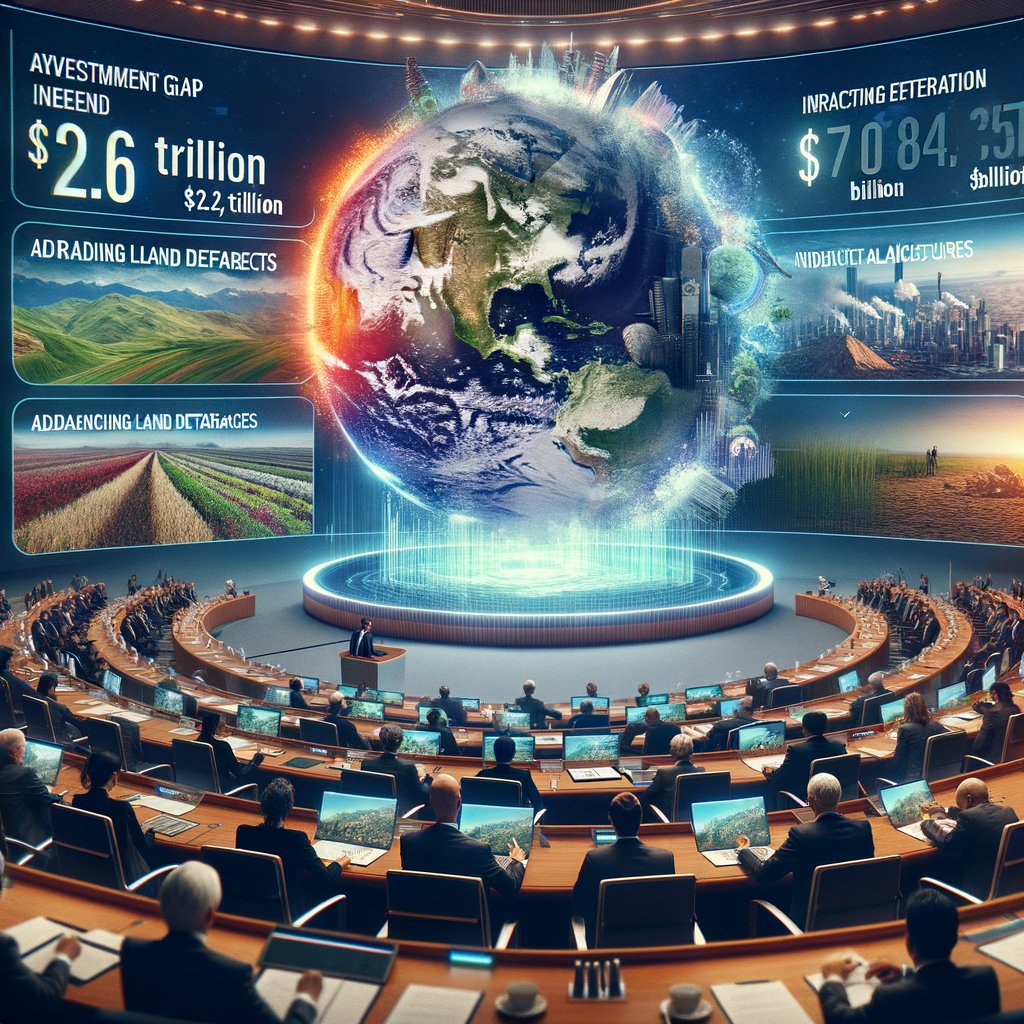Image created by AI
A $2.6 Trillion Call to Action: UN Urges Major Investment in Land Restoration
In a compelling appeal to the international community, the United Nations has called for an urgent infusion of $2.6 trillion by the end of this decade to reverse the alarming rate of land degradation worldwide and strengthen drought resilience. This call was made by Ibrahim Thiaw, Executive Secretary of the United Nations Convention to Combat Desertification (UNCCD), amid a critical meeting in Riyadh aimed at reinforcing global commitments to sustainable land management.
The staggering sum needed, comparable to the annual economy of France, underlines the severity and urgency of the environmental challenges posed by intensified agricultural demands and climate change-induced droughts. Thiaw's report revealed a significant investment gap in land restoration, with only $66 billion invested in 2022 against an annual requirement of $278 billion.
As the world's population continues to burgeon, doubling food production without expanding land use has become imperative. Thiaw emphasized the disproportionate role of the private sector, which currently fuels much of the land degradation through intensive agricultural practices, yet contributes a mere 6% to land restoration funding. This sector, therefore, is pivotal in transitioning towards sustainable practices.
The discussions in Riyadh also touched upon the legal frameworks necessary to enforce land use policies effectively. Thiaw pointed out the complexities in harmonizing international efforts, as some nations remain hesitant to commit to legally binding agreements. However, achieving a consensus on robust legal obligations is crucial for the 1.5 billion hectares target set for land protection, a significant step up from the current commitments covering 900 million hectares.
The urgency of these efforts cannot be overstated. Land degradation is advancing at about 1 million square kilometers annually, an area larger than the size of South Africa. This degradation not only threatens biodiversity and increases greenhouse gas emissions but also directly undermines global food security and water availability.
Importantly, Thiaw framed the required investment as a global imperative rather than charitable aid. It is an investment in global stability and sustainability, recognizing that affluent industrial actions have significantly contributed to the current environmental strain.
To sum up, as the UN convenes global leaders and stakeholders, the overarching message is clear: a swift and substantial increase in funding and legal commitments is essential. Promoting responsible land management and restoration is not just an environmental responsibility; it is integral to sustaining the very foundation of human civilization.










